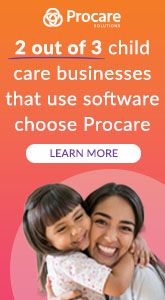We live in an ever-changing world. The pace of this change comes with rewards in the form of research and advancements in science and technology. However, in eras of immense change, there are growing pains. We are learning that the human brain is evolving more rapidly than in previous eras. It will be decades before science and history can fully capture the scale or sociocultural impacts of these neurological changes. As we widen our understanding of key areas such as neurology, psychology, and child development, we find ourselves in the realm of the unknown. A liminal space where what was once considered standard is questioned, and what will come next has yet to be defined.
It is natural for these stages of germination to come with fears, uncertainties, and criticisms from established experts and leading-edge innovators alike. We do best as a species when we can honor the legacy of the past while moving forward together. Yet, what do we do when we learn an accepted practice is not only outdated but also harmful? How do we reckon with a lack of understanding that leads to mistreatment, misdiagnosis, and undue stigma, today?
More adults are being diagnosed with ADHD and autism today than ever before. Specifically, people who were assigned female at birth are 80 percent more likely to go undiagnosed with ADHD and autism until adulthood. Scientific studies are finally including more women, trans, and nonbinary bodies and social media is enabling people to connect with others online who share their lived experiences. These factors are coalescing into a new wave of neurodivergent-identified people grappling with and processing past experiences through a new lens.
ADVERTISEMENT
Many people still do not want to be identified through the lens of neurodivergence, and that is a valid viewpoint. Western society has a tendency to label and categorize to understand. Pathologizing behavior without a deep understanding of cultural context or accounting for individual nuance is problematic.
Still, there is something powerful about naming. Whether self-identified, clinically diagnosed, or otherwise suspected, the diversity and incredible value of traits and experiences across the neurodivergent spectrum are beginning to be respected as normal, natural, and needed in society.
Yes, many people with neurological differences have great challenges with executive functioning, emotional regulation, sensory sensitivities, and more. At the same time, we can better support young children and families navigating these hurdles when we place them within a larger context of the many unique and wonderful gifts neurodivergence offers.
We need new perspectives and ways of looking at the world that are less punitive, more ability-fluid. We have the ability to create education and care systems that are considerate of those who were historically pushed to the margins and are now being welcomed back into a wider, brighter, more complex circle of social and political influence.
Imagine how our world would thrive if we made room for neurodivergence as a key aspect of biological diversity. We can do our part today, with the young children we care for and teach, with the families we partner with, and with the people we encounter each day, whether we know their diagnosis or not. We can decide that everyone is allowed to be; with kindness, respect, boundaries, and curiosity.
Former Exchange Press Editor-In-Chief








